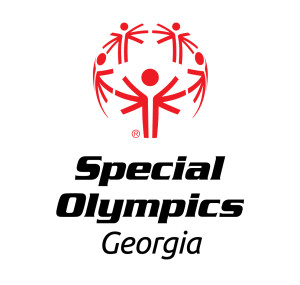 • 17,429 Athletes are Registered in Georgia
• 17,429 Athletes are Registered in Georgia
• Over 600 Special Olympics Competitions take place annually in local communities throughout Georgia
• There are 4 statewide competitions: Winter, Summer, Fall Games, as well as Horse Show
Use People-First Language
Words can open doors to enable persons with disabilities to lead fuller, more independent lives. Words can also create barriers or stereotypes that are not only demeaning to persons with disabilities, but which also rob them of their individuality.
The following language guidelines have been developed by experts in the field of intellectual disabilities for use by anyone writing or speaking about persons with intellectual disabilities or closely related developmental disabilities, to ensure that all people are portrayed with individuality and dignity.
– A person has an intellectual disability, rather than is suffering from, afflicted with, or a victim of mental retardation. It is preferred terminology not to write or say that a person is “mentally retarded.” The important point to remember when writing or speaking is to refer to the person first to avoid labeling them by their disability.
– Do not use the “r-word” under any circumstances.
– Refer to people in Special Olympics as athletes. The word athletes should not appear in quotation marks.
Down syndrome has replaced “Down’s Syndrome” and Mongoloid.
– Physically challenged or disabled rather than crippled.
– Someone who is partially sighted is visually impaired rather than blind.
– A person is hearing impaired rather than deaf or deaf mute.
– Distinguish between adults and children with intellectual disabilities, and older or younger athletes.
– A person uses a wheelchair rather than is confined or restricted to a wheelchair.
Please do not use the following terminology:
-Do not use the word “kids” when referring to Special Olympics athletes. Adult athletes are an integral part of the program.
-Do not use the adjective “unfortunate” when talking about persons with intellectual disabilities.
-Do not use the word “the” in front of Special Olympics unless describing a specific Special Olympics event.
-Do not sensationalize the accomplishments of people with a disability. While these accomplishments should be recognized and applauded, people in the disability rights movement have tried to make the public aware of the negative impact of referring to the achievements of people with physical or mental disabilities with excessive hyperbole.
-Do not overuse the word “special” when referring to persons with intellectual disabilities. Their accomplishments should not be trivialized by using cute words to describe their efforts.
